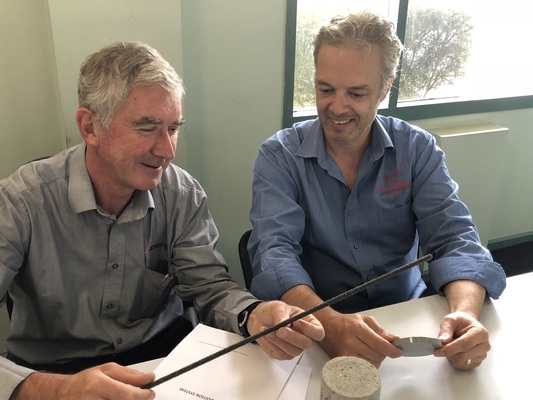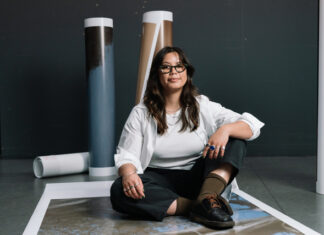By Luke Voogt
“Super” bridges requiring no maintenance for a century could span rivers and roads in Geelong – and worldwide – if an ambitious local engineering project succeeds.
Geelong engineers won a council tender for two pedestrian bridges with 100-year design lives to replace existing timber structures spanning Cowies Creek at North Geelong.
“This project, developed in Geelong, is an example of how we can lead the way in bringing sustainable solutions to the market,” Geelong deputy mayor Peter Murrihy said.
Timber, steel and concrete bridges around Geelong cost council about $500,000 a year in maintenance, he added.
Geelong-based engineers Austeng, Deakin University’s Carbon Nexus and concrete company Rocla designed the tender-winning bridges, and construction will begin this year.
The local engineering consortium would use carbon fibre and geopolymer to build them, explained Austeng managing director Ross George.
If successful, the technology could replace thousands of council-owned bridges across Australia, he said.
“Future opportunities are immense.”
The project could kick start a new Geelong-based industry, Mr George said.
“There is no reason this product cannot ultimately be used for structural purposes such as multi-storey buildings.”
The combination of materials would eliminate “concrete cancer”, the rusting of steel reinforcements in concrete slabs, Mr George said.
Unlike concrete, geopolymer was immune to chemical and thermal degradation, he said.
The combination of these traits would greatly reduce maintenance costs, Mr George said.
The Austeng-led consortium beat seven other tenderers from across Australia, as the most competitive on price, innovation and local content.
Council offered the tender through a ‘procurement for innovation’ process to encourage the development of clean technology.
“Currently there’s no incentive for government to be adventurous in the way they procure, rather they take a conservative and bureaucratic position,” Mr George said.
“This is why we need more governments like the City of Greater Geelong.”
Geelong industry alliance Cleantech “enabled” the project with grants and support for the tenderers to invest in research and international expertise.
“Public sector buying power” would help transition local manufacturing to new innovations, said David Peart, Cleantech co-chair and Geelong Manufacturing Council chief executive officer.
“This project will result in new jobs. Geelong designed and made, it doesn’t get better than that.”









